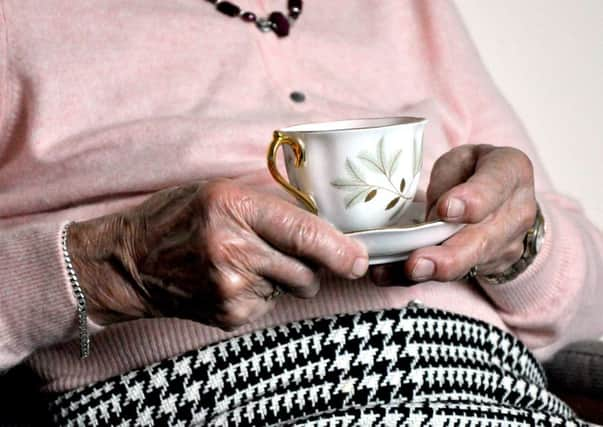Andrew Vine: Why Ministers deserve blame for council tax rise


These are the likely victims of a looming crisis in local government funding, which will result in cuts to services, however much council tax is increased.
Councils across Yorkshire are braced for one of the most difficult years they have known. Demand on services is constantly increasing, but the funds needed to enable them to meet it are not being provided by the Government.
Advertisement
Hide AdAdvertisement
Hide AdAnd, inevitably, the axe will have to fall on the most costly of council functions, with adult social care and children’s services high on the list.
This is an unfolding crisis that is receiving far too little attention from the Government, consumed as it is by Brexit and the wranglings in its own ranks.
But it is also largely the Government’s own creation, in part because of its reprehensible practice of passing the buck to councils on issues that should be a matter of national, and not local, responsibility.
This was evident last year when the Government effectively instructed local authorities to raise council tax to pay for additional social care. It was also apparent when the Transport Secretary, Chris Grayling, had the effrontery to tell councils across the North that improving inadequate rail services was up to them.
Advertisement
Hide AdAdvertisement
Hide AdAs the scale of the problems started to become apparent last week, the Government was at it again, with the Ministry of Housing, Communities and Local Government laying emphasis on the greater control given to councils over how business rates are spent.
In other words – it’s your problem, sort it out.
This isn’t good enough. An annual funding crisis for councils is simply not acceptable. It’s a dereliction of the Government’s duty if they have been reduced to such a parlous state that the Local Government Association is warning that some are “perilously close” to financial collapse.
Last week’s State of Local Government Finance Survey made for grim reading, with 80 per cent of councils deeply concerned about their financial position, and nine out of 10 certain to be overspent on their budgets by the end of the year.
Councils are dipping into their reserves to make ends meet, but that cannot continue indefinitely, and an even worse crisis looms when those pots of money are exhausted.
Advertisement
Hide AdAdvertisement
Hide AdLocal government is not crying wolf about the problems it faces. Chronic underfunding is at the heart of the difficulties, and in some respects the crisis resembles that engulfing the NHS.
For both the health service and councils, demand has increased relentlessly as the population grows and ages. Elderly people who need hospital treatment also have to be looked after when they are discharged, with the burden falling on council-run social care.
This is not a problem that can be managed piecemeal at local level. It ought to be recognised for what it is – a strategic issue for the country that needs to be funded and planned nationally.
There needs to be a comprehensive rethink of the way councils are funded. They are anything but spendthrift, and the annual rounds of cost-cutting that have been forced on them are unsustainable.
Advertisement
Hide AdAdvertisement
Hide AdIt is disgraceful that in a country with one of the wealthiest economies in the world, parts of the municipal system that is expected to deliver so many services vital to everyday life, from care to environmental health to maintaining the roads, are in danger of collapse for want of money.
Maybe it will take what amounts to the bankruptcy of a local authority to stir the Government out of its torpor, and actually give councils what they need.
Money can plainly be found when it is in the Government’s interest, as demonstrated by the £1bn bribe given to Northern Ireland in the grubby deal with the Democratic Unionist Party for support in Parliament.
What a difference for the better those funds would have made if they had instead been spread around Yorkshire’s councils to look after elderly people or help vulnerable children.
Advertisement
Hide AdAdvertisement
Hide AdDecency, and the plight of both young and old in need of help, should compel the Government to give councils a better deal. But so should basic political nous.
Council tax payers know perfectly well that it is not councillors, or officers, who have created this crisis. At the local elections in May there is every likelihood of a protest vote against the Government over the way the country is being run.
But it will also be a vote against the way councils are being treated, and the consequences for those who cannot help themselves. If there is a rout of Tories at local level, compounding their difficulties nationally, then the party will have nobody to blame but itself.